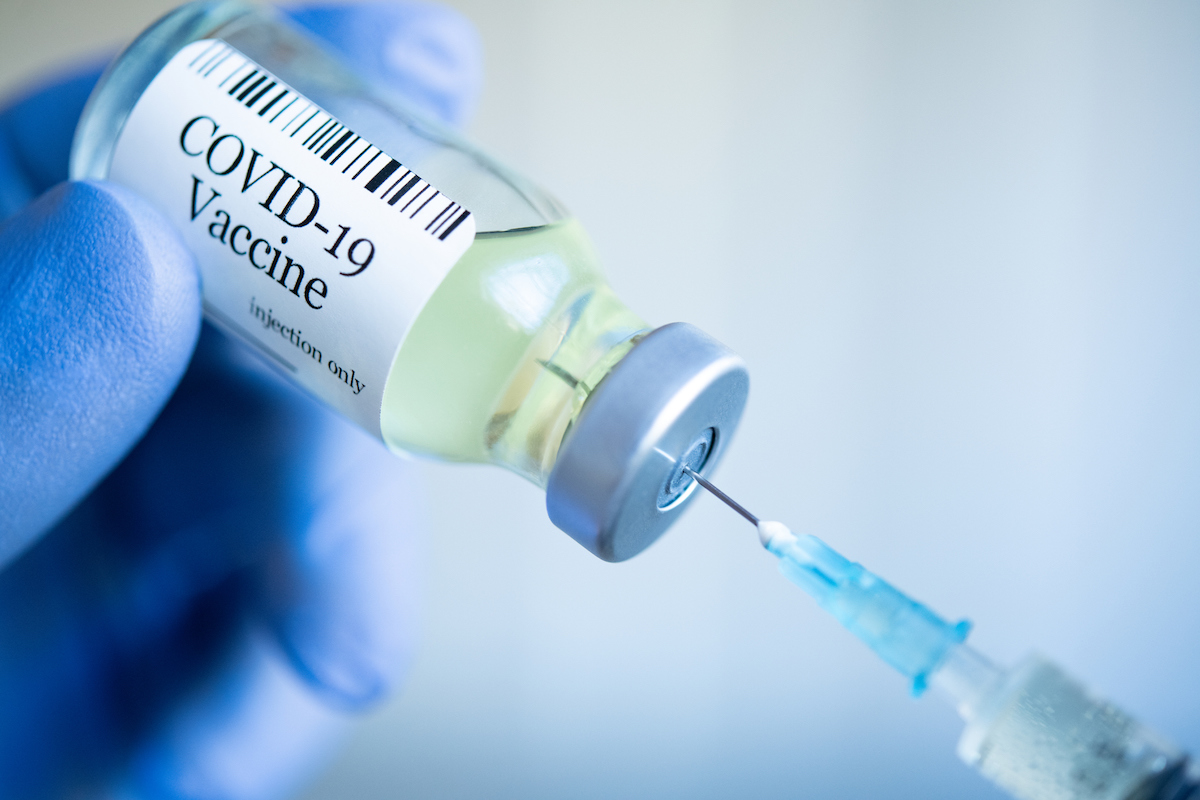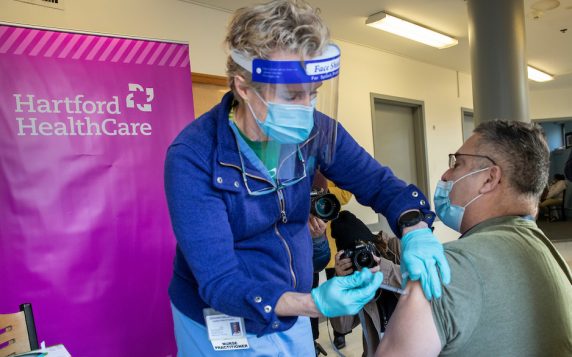Is it possible it’ll soon be OK to mix-and-match COVID-19 vaccines when you’re eligible for a booster?
And when will the Food and Drug Administration approve boosters for people who received the Moderna or Johnson & Johnson vaccines?
Here’s the latest:
Boosters: Homologous or Heterologous?
A booster shot with the same brand as your previous vaccine dose is called a homologous booster. Since vaccines became available late last year, we’ve been a homologous nation — with only a few early exceptions when supplies were limited. Nothing has changed with the boosters.
“Right now, unfortunately, you have get the vaccine that you were vaccinated with before,” says Dr. Ulysses Wu, Hartford HealthCare’s System Director of Infection Disease and Chief Epidemiologist. “Down the road, some of the literature supports that we may be able to mix-and-match some vaccines.”
The United States, in fact, does not consider people who have received different brands of vaccine fully vaccinated. But this week, an expert committee advising the Centers for Disease Control and Prevention will report results of a mix-and-match clinical trial conducted by the National Institute of Allergy and Infectious Diseases. The trial sought to determine if using a different vaccine as a booster provides better protection.
We could also learn if the two-dose Pfizer-BioNTech and Moderna vaccines, which use the same mRNA technology, are actually interchangeable. And could one of those mRNA vaccines work as a booster for recipients of the single-dose Johnson & Johnson vaccine?
Some vaccines, such as Russia’s two-dose Sputnik V for COVID-19, use a mix-and-match, or heterologous, approach. Similar, but different, doses are designed to ensure the first dose’s immune response doesn’t block the second dose’s action.
Moderna and J&J Boosters
Independent advisers meet with the Food and Drug Administration Thursday and Friday in the first step toward approving boosters for the two-dose Moderna and single-dose Johnson & Johnson vaccines. Final approval could come before the end of the month. And next week, a CDC panel will meet to determine who should get the boosters.
The FDA’s scientists, as they did before the approval of the Pfizer-BioNTech booster, declined to take a position Tuesday on Moderna’s booster application because of data showing two doses sill offer protection from severe disease and death.
Deliberations otherwise appear focused on the amount required for an effective booster. Moderna uses 100 micrograms of vaccine for each of the first two doses. But the drugmaker says 50 micrograms might suffice as a booster for healthy people. When Moderna, in testing, gave 344 people a 50-microgram booster six months after their second dose, the company said it triggered 42 times more antibodies to fight the highly transmissible Delta variant.
J&J, meanwhile, submitted data to the FDA with options for a booster at two months or six months after the initial dose. In test results released last month, a booster at two months offered 94 percent protection from moderate to severe COVID infection. The company said the initial dose retains 80 percent effectiveness at preventing COVID-related hospitalization.



